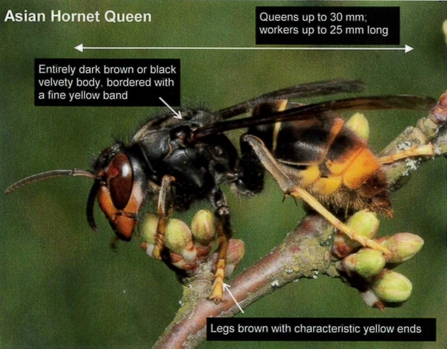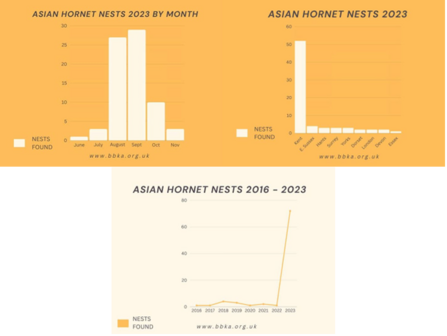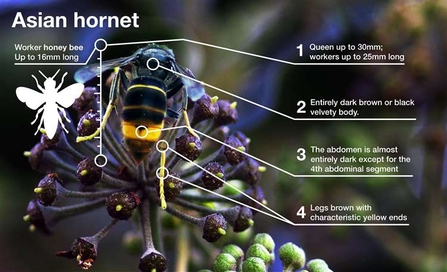How do I know if I’ve seen one?
Identifying Asian hornets (Vespa velutina) is easy once you know what you are looking for.
The image below shows that the Asian hornet is nearly entirely black, with a velvety body. The abdomen is black except for the one very wide orange stripe on the fourth segment and a few fine yellow bands. The legs look like they’ve been dipped in yellow paint and the face is orange.




